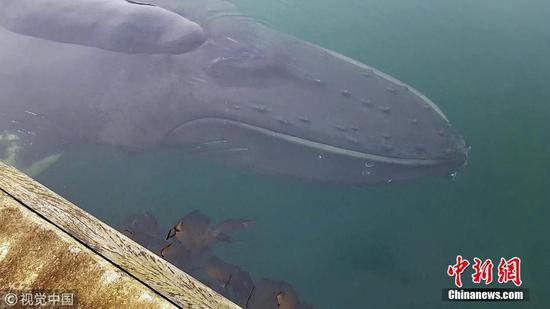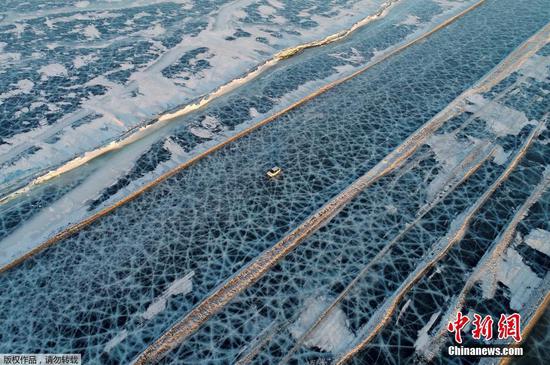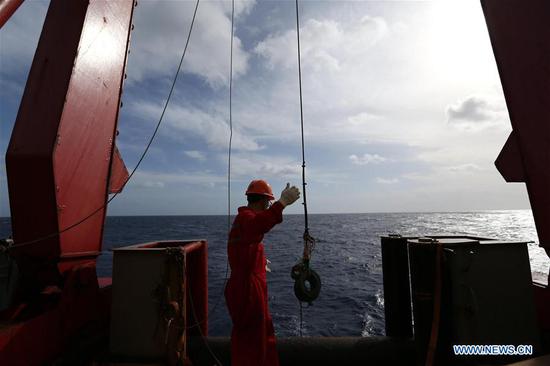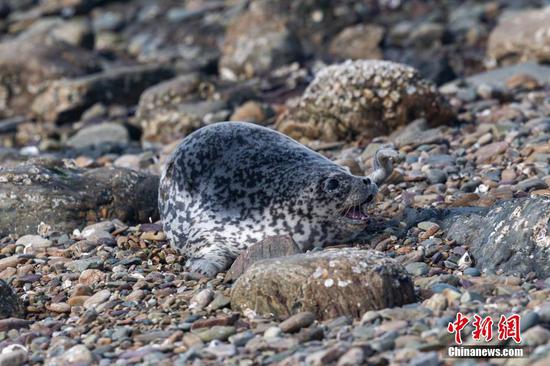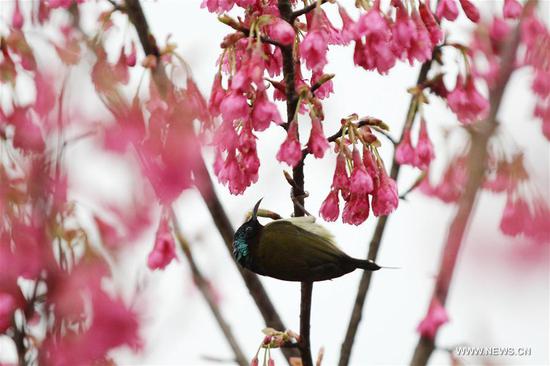Zhu Changhong, a fisherman on the Yangtze River, bid farewell to his fishing boat and gear for good, as a 58-km waterway where he used to fish completely outlawed fishing for the protection of river dolphins at the beginning of 2019.
"We had been fishing on the river for generations. It's our family's livelihood," said the 53-year-old, who learned how to fish from his father when he was a kid. As a child, he used to love watching the river dolphins swimming near the shore searching for small fish.
As he grew up, the dolphins became more and more terrified by the influx of fishing boats.
"As traffic on the river increased, I occasionally saw dead dolphins which were injured by the blades of cargo vessels," Zhu said when explaining why he and other 1,000-plus fishermen in Datong Township, east China's Anhui Province, understood why the local authorities banned fishing and helped them look for jobs.
To protect Yangtze's fish stocks, an annual fishing ban was put into place in 2003, leaving fishermen without work for three months each year. The ban expanded to four months in 2016, from March 1 to June 30.
The river section where Zhu lives in east China's Anhui Province, was turned into the Tongling Freshwater Dolphins National Nature Reserve in 2000, to protect the river mammal, as the species teeters on the brink of extinction with a population of around 1,000 in the main waterway of the Yangtze, according to research conducted in 2017.
"I expected a full fishing ban to come sooner or later," said Zhu.
But when the day finally came on Jan. 1, Zhu was depressed, shedding tears to see his 12-meter long boat, which he bought five years ago, resting quietly in the harbor.
Zhu is expected to receive a subsidy of 120,000 yuan (around 17,910 U.S. dollars) for losing his family business. He and his wife were recruited by the administrative office of the national reserve in a patrol team responsible for reporting sightings of the finless porpoise and cleaning the floating trash.
Zhu is happy about the employment, which allows his family to continue to live by the river, although in a different way.
"We patrol 10 to 15 km of water on average a day, collecting around 200 kg of trash," Zhu said. The couple earns around 600 yuan a day.
He found that with fewer vessels on the river, the dolphins are getting more accustomed to approaching patrol boats.
"I can now get as as three to four meters. It reminds me of when I saw them in my childhood," Zhu said. "It's rewarding to protect these angels of the Yangtze River."













